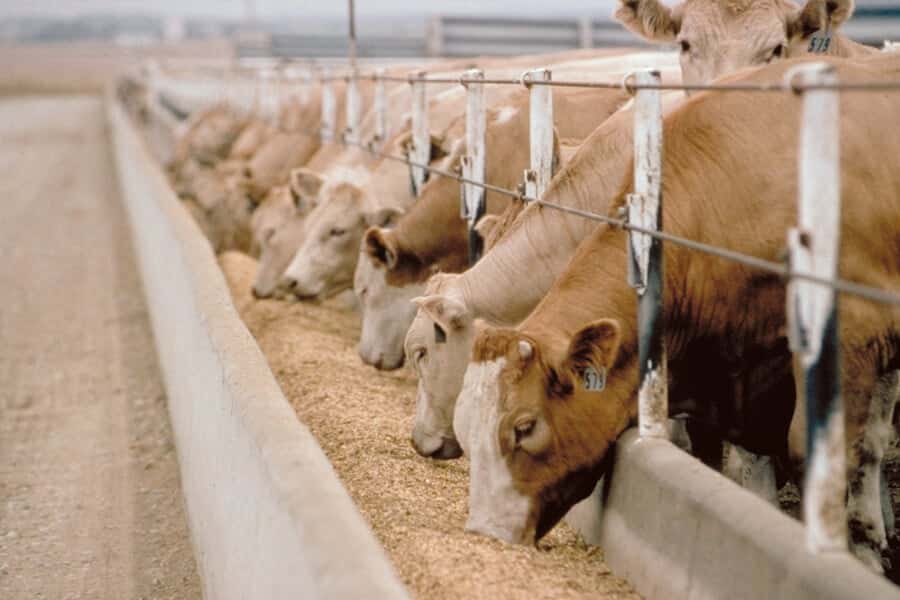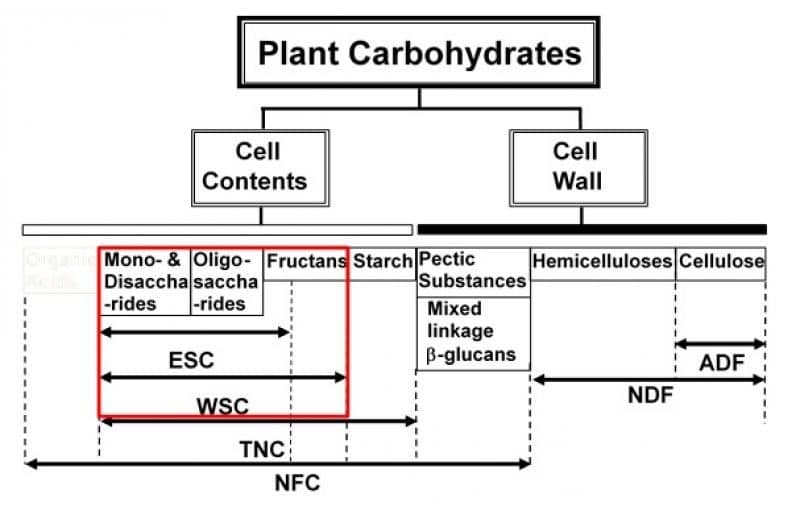
Carbohydrates are an important energy source for your livestock so it’s important that you know how much source of Carbohydrates In Feed. Carbohydrates are made up of units of sugar, starch, cellulose and lignin. They play many important roles within the body such as providing the energy necessary for muscular movement and act as a heating source to maintain body temperature. They also provide the building blocks that are necessary for other nutrients to be formed successfully. When there is an excess of carbohydrates in the diet they will be stored as fat and when there is a deficiency the body will draw on these fat stores. If there are no fat stores to draw on then your livestock will lose condition which will impact on productivity.
In plants, carbohydrates are produced from the process of photosynthesis. There are two major classes of carbohydrates in plants referred to as structural and non-structural carbohydrates which can been seen in figure 1. Structural carbohydrates make up the fibrous part of the plant such as the cell wall and are used to create rigidity and structural support. Whereas the non-structural carbohydrates, which make up the cell contents in a plant, are used as storage and energy sources and are able to be broken down faster when they are digested.
The two measures of non-structural carbohydrates that you will see in your feed test results are water soluble carbohydrates (WSC) and ethanol soluble carbohydrates (ESC). WSC is a measure of the sugars such as monosaccharides, disaccharides, oligosaccharides and some polysaccharides such as fructan which is a major storage carbohydrate in grasses. ESC makes up a proportion of the WSC content as seen in figure 1.
To measure the structural carbohydrate components of your feed source you must look at the fibre content results which are shown in the results for neutral detergent fibre (NDF) and acid detergent fibre (ADF).
